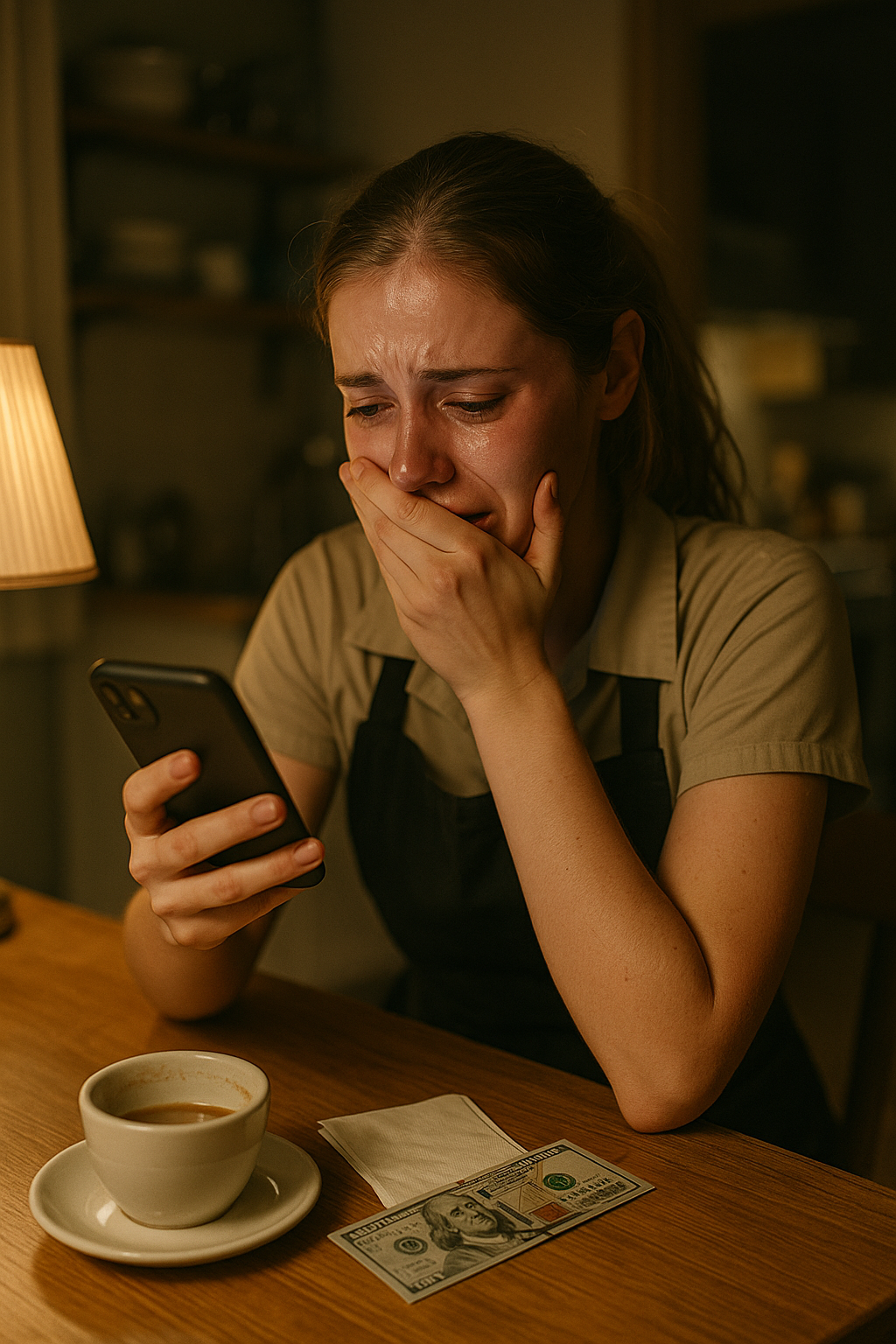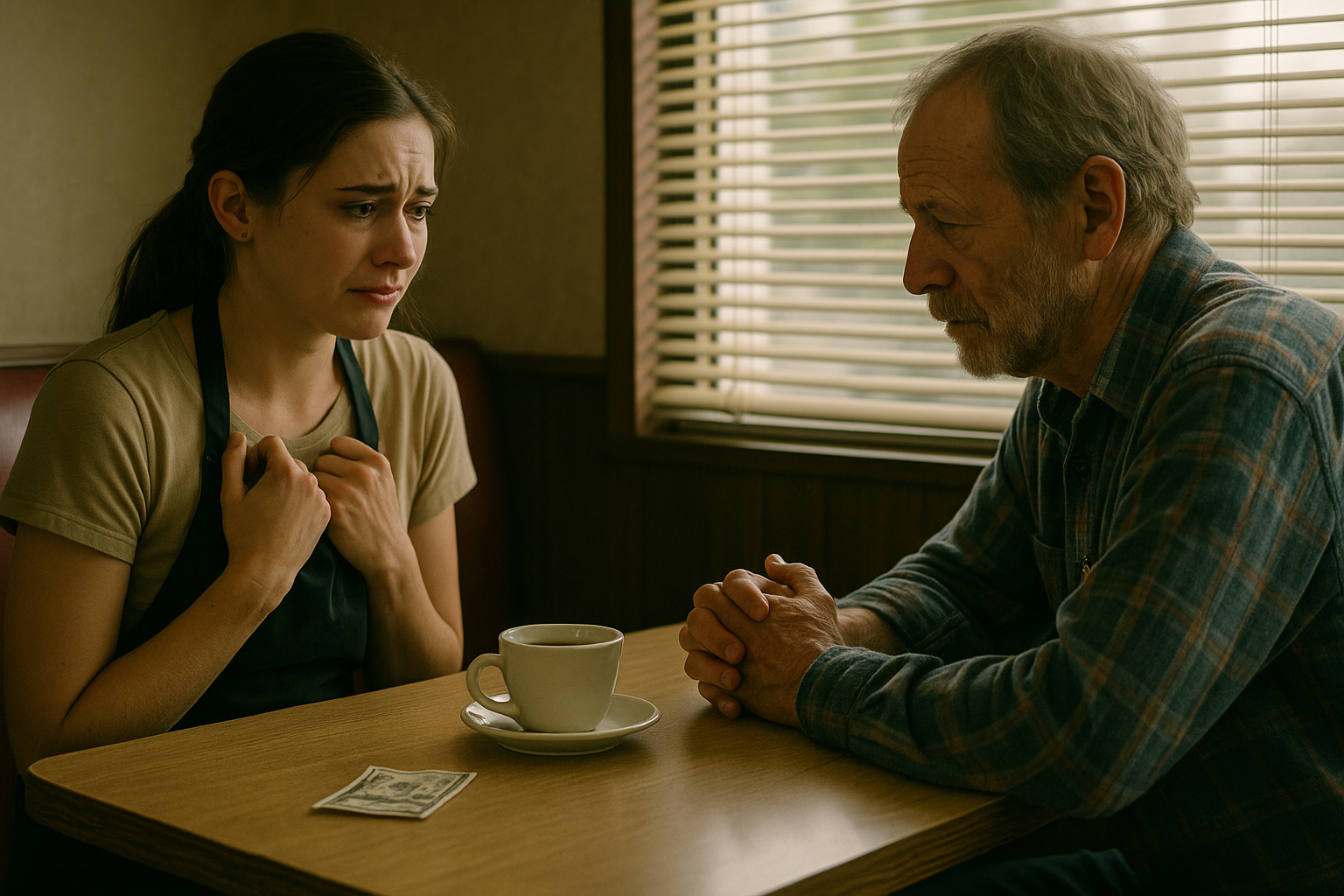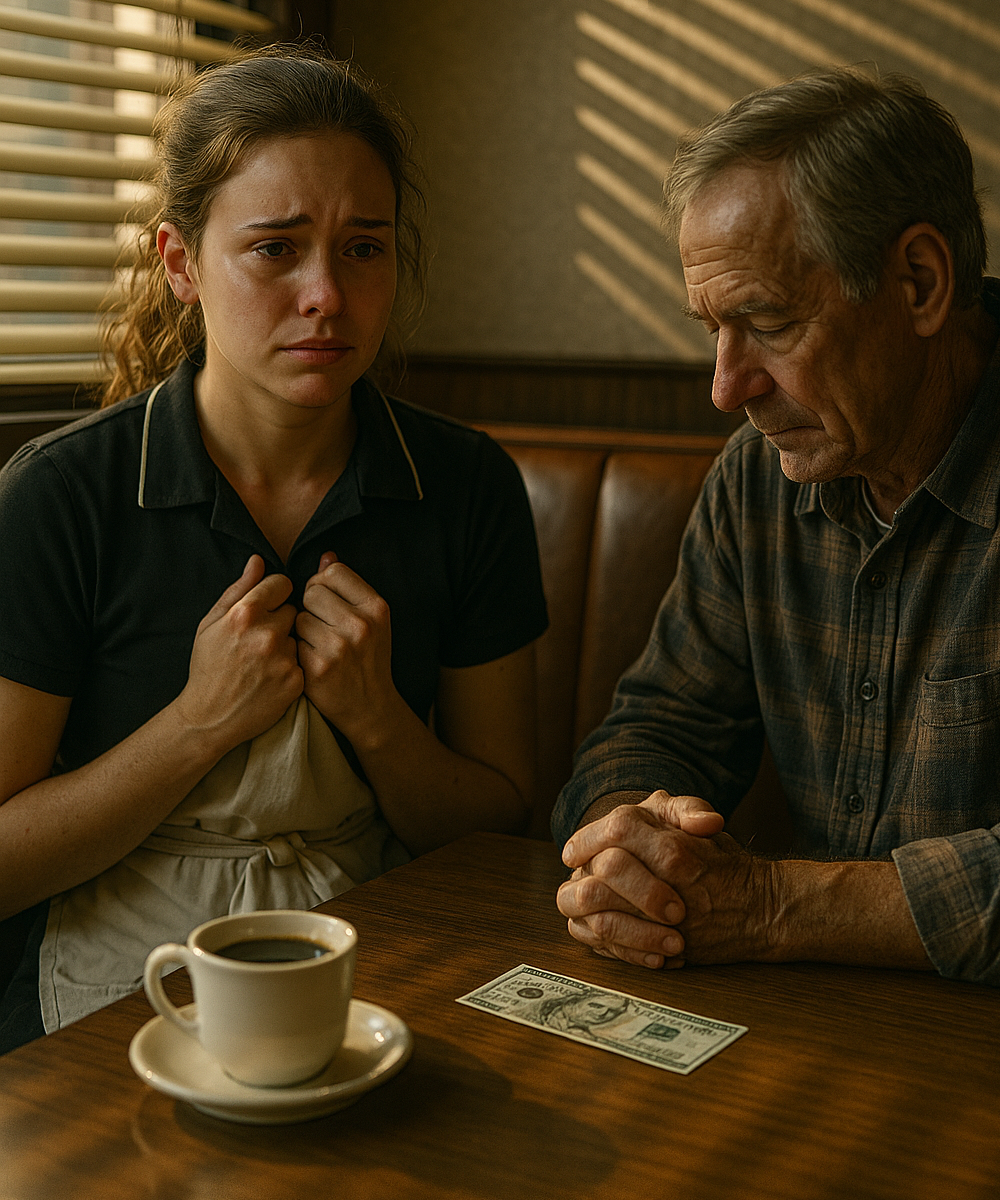Sunday Mornings at the Diner
I’ve been working at Denny’s for a couple of years now. It’s not the kind of job people brag about, but it’s steady. Comforting. The smell of coffee, the clatter of dishes, the bell over the door ringing as familiar faces walk in—it’s become a rhythm I depend on.
Every Sunday morning, the diner fills with regulars who make the place feel like home. There’s the elderly couple who share strawberry pancakes, fingers intertwined across the table. The rowdy soccer boys who pile in after practice, laughing and eating like they haven’t seen food in days. A young mom who patiently helps her toddler dip waffle bites into syrup, her little one’s seriousness so adorable it makes my heart soften.
Even the guy in the corner who orders the same omelet while typing away like he’s writing a novel. They all give this job meaning beyond pouring coffee and clearing tables.
But then there was one man who stood out more than anyone else.
The Quiet Man in the Plaid Shirt
He always sat in the same booth—third from the back, by the window with the parking lot view. He wore the same faded plaid shirt every week, the elbows worn thin. Sometimes he ordered pie, sometimes a sandwich, but always coffee.
He never came with anyone. He never said much. But every single Sunday, he left me a $100 tip.
At first, I thought it was a mistake. I ran after him that first week, holding the bill out.
“Sir, you left this—”
He gave me a small smile and said, “That’s for you.”
Then he walked out the door.
After that, it became routine. Every Sunday, same booth, same nod, same tip. No explanation.
What the Tips Meant to Me
I’m not exactly rolling in money. I share a tiny apartment with my cat, Peanut, and juggle two jobs while taking night classes in accounting. That $100? It mattered. Some weeks it meant groceries. Other weeks it was gas, rent, or keeping the lights on.
But it wasn’t just the money. It was the feeling that someone out there noticed me. That I mattered.
My best friend Rose, who also worked at the diner, joked about it one night as we split a grilled cheese after our shift.
“Maybe he’s rich,” she said. “Or maybe you remind him of someone—like a daughter.”
I laughed, but deep down, I knew she was right about one thing: he had a story.
The Day He Looked Different
One Sunday, something was off. His face was paler, his eyes tired, like he was carrying something too heavy to hide.
He glanced at my nametag before saying softly, “Thank you, Jess.”
It was the first time he ever said my name out loud.
He left the usual tip, but I couldn’t shake the feeling. On impulse, I snapped a photo of him walking to his car. Later that night, I posted it on Instagram with a short caption:
“Every Sunday, this quiet man leaves a $100 tip at our diner. He never says much, but his kindness means more than he’ll ever know.”
Ten minutes later, my phone rang. It was my mom.
The Call That Changed Everything
We hadn’t been close in years, but something made me answer.
Her voice was trembling. “Jess… why did you post that photo?”
“Why? What do you mean?”
“That man… that’s your father.”
The room spun. My breath caught in my throat.
“No. That can’t be.”
But it was.
“He left when you were a baby,” she said after a pause. “I was angry. I wanted to protect you. I erased everything—every photo, every memory. But… he came back a few months ago. He’s sick. He just wanted to see you. So I told him where you worked.”
And suddenly, it all made sense.
The tips weren’t just generosity. They were his way of saying, “I see you.” I’m sorry.

Meeting Him Face to Face
The next Sunday, I showed up early. I didn’t know if he’d come. But there he was—plaid shirt, weary eyes—sliding into his booth.
This time, I sat across from him.
He blinked, surprised. “Jess…”
“Why didn’t you tell me?” I whispered.
He lowered his gaze. “I didn’t think you’d want me back in your life. I failed you. I thought… maybe the least I could do was help in some way. Just being near you was enough.”
A thousand words pressed on my tongue. Where were you on my birthdays? My graduations? The nights I cried alone?
But what I actually said was, “You’re my father. And you left.”
He nodded slowly. “I know. And I’m sorry. I never stopped thinking of you. But I didn’t deserve to come back.”
I bit back tears. “I don’t need your money.”
“I know,” he said softly. “But I didn’t know what else to give.”
I stood, my chest aching. “I have to get back to work.”
When I came back to check his table later, he was gone. No cup. No tip. Just a folded napkin.
One word written inside: Sorry.

His Final Gift
That was the last time I saw him.
Two weeks later, a letter arrived in the mail. No return address. Inside was a check for $5,000 and a note in careful handwriting:
“For your future. For the birthdays I missed. For the books you’ll need for school. I hope you can forgive me someday. —Dad”
I held that check for hours, unable to move. It wasn’t just money—it was a man’s final attempt to make peace with the past.
I didn’t cash it right away. I tucked it in my drawer beside the napkin. Months later, when I enrolled in my last semester of night school, I used it to pay off my tuition.

The Empty Booth
I still work Sundays at Denny’s. The light still filters through the blinds. The regulars still come in, one by one. But the booth by the window—his booth—sits empty.
Every time I walk past it, I smile. Not because of the money.
But because, in his own broken way, he found a path back to me.
And that has to mean something.
